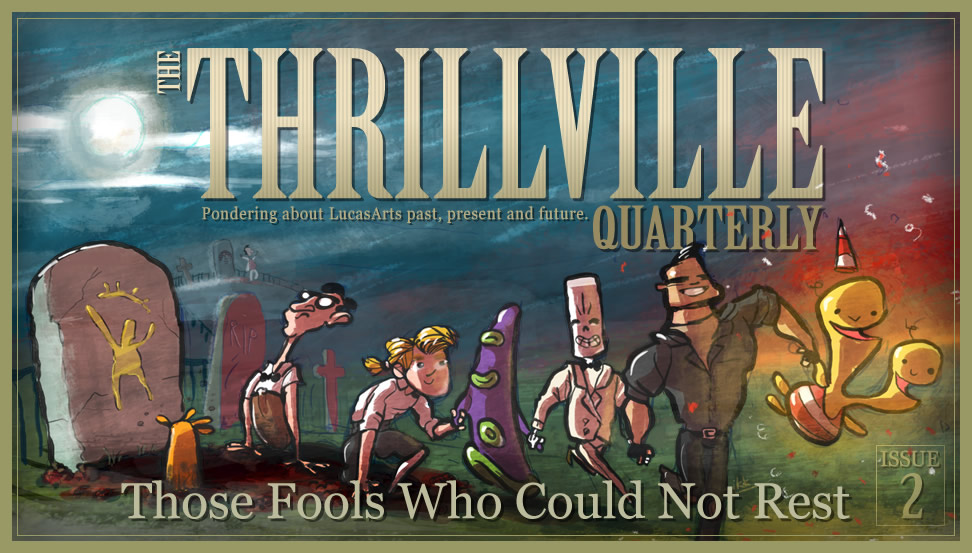In a nice interview with Eurogamer, Tim Schafer shares his feelings on what he now looks back on as a wrongheaded promotional strategy for the studio's softly successful Brutal Legend, revealing some interesting mindsets behind the three companies involved with regard to the title's RTS elements:
Schafer admits that he's not entirely blame free and that Vivendi, EA and Double Fine all took part in its notorious bait-and-switch.
"Vivendi was like 'No. Absolutely not. We'll never say RTS, ever. Even if someone asks us if it's an RTS we'll say no.'"
"EA mostly just didn't emphasise it," Schafer says. "They never told us not to talk about it. In fact, they did a whole press event at a bar in San Francisco that was all about the multiplayer. We released our multiplayer tutorial trailer before the game came out, so they weren't hiding it at all."
As far as Double Fine goes, it released a hugely misleading demo that focused on the game's driving and melee combat. This was entirely due to accessibility reasons regarding the game's steep learning curve. "The demo was kind of an accident," explains Schafer. "The mechanics ramp up slowly over time, so the demo is usually the first mission, so you just don't know those complicated RTS mechanics yet."I think Tim's sense that openness is the way to go is correct, but it's hard to say how much, financially, it would have helped Brutal Legend. It's known now that the game was effectively built around the stage battles concept, but as Double Fine expanded the single player campaign they were able to give it an open world and imbue it with some of the depth of a dyed-in-the-wool action/adventure epic.
When you're playing through Brutal Legend as a story, though, as you can't blame anyone for doing, you don't really have the context that the stage battles are meant to be the core and that in a sense the single player campaign is a (elaborate, extremely lovingly crafted) kind of training for the multiplayer, and for many the experience came off as an open word action/adventure that had a bizarre identity crisis midway through.
However assumptions or marketing colored one's expectations, the final game was certainly an unusual hybrid of gameplay types that many people didn't know what to make of, and considering the absolute distaste a large sect of gamers apparently reserve for even the most simplified of RTS mechanics out of principle (just glance at the Eurogamer comments), one can kind of see where the cynical Vivendi marketers were coming from.
Personally? I don't fault the vision of the game at all, and blame the response on its scale, which seems to have grown almost too much over development. Here is what should have been a great cult game that got packaged as a blockbuster thanks to the extra single player tinsel, a celebrity cast, an expensive soundtrack and tons of marketing that proved to give the mainstream the wrong idea. Had Brutal Legend been of a similar scope to Iron Brigade, I suspect it would have been understood.
The
full interview also contains Tim's thoughts on free-to-play, and how it may have allowed him to execute ideas he had for improving
Brutal Legend and
Costume Quest post-launch. And as for
Psychonauts 2?
"Nothing new has happened there, but it's still something that's an ongoing process. I'm still interested in that."
Source: Eurogamer


